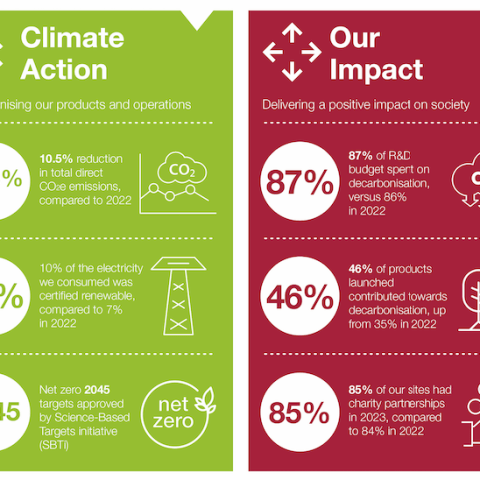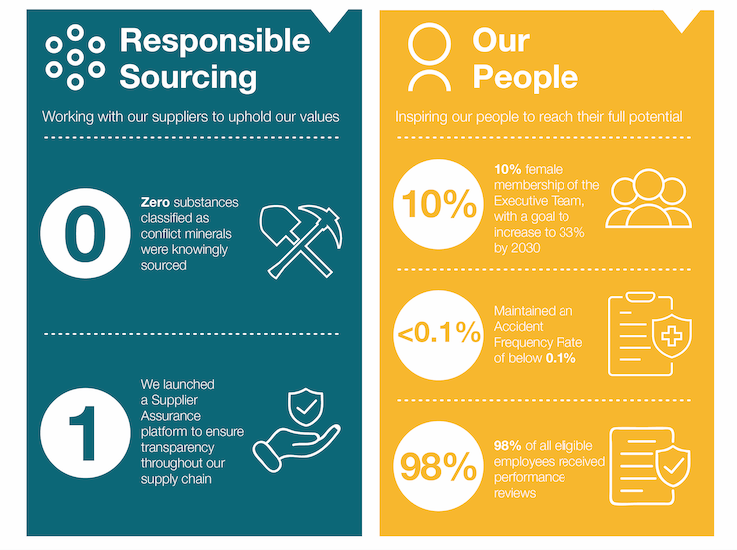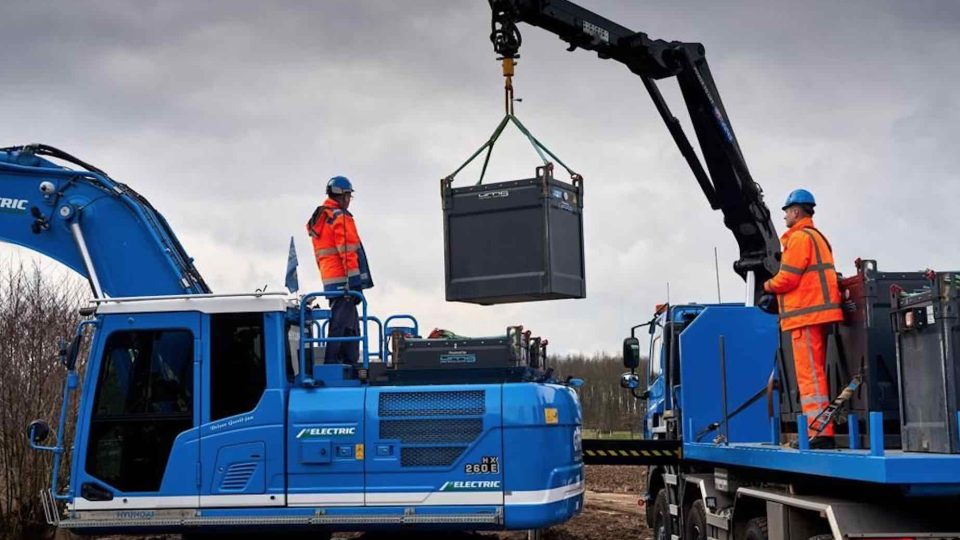GKN Automotive reduces direct CO2e emissions by 10.5% in 2023
GKN Automotive, the global leader in drive systems, has published its latest Sustainability Progress Report: in 2023, CO2e emissions were 10.5% lower than the previous year.

GKN Automotive has published its latest Sustainability Progress Report, demonstrating the progress made in 2023 against all areas of its strategy.
The company’s sustainability strategy is aligned with the UN Sustainable Development Goals (SDGs) and embedded across the business. It’s built on core foundations of ethics, compliance, safety and security, and based around four strategic pillars: Climate Action, Our People, Responsible Sourcing and Our Impact. Each pillar is tied to ambitious targets that focus the company’s efforts.
Accelerating progress in its Climate Action pillar, the company reduced its total direct CO2e emissions (scope 1 and 2) by 10.5% in 2023, compared to the previous year. Energy savings contributed the majority of on-site emissions reductions, via initiatives such as replacing energy intensive production equipment and implementing upgrades to air conditioning and heat systems.
This achievement marks a significant step for GKN Automotive towards meeting its long-term carbon emissions reduction target to be net-zero across its value chain by 2045, which was approved by the Science Based Targets initiative (SBTi) in 2023.
Further highlights in the report include:
- 10% of electricity consumed was certified renewable, up from 7% in 2022. This included purchasing 100% renewable electricity at three sites in Europe.
- 87% of R&D expenditure was on products that contribute to the decarbonisation of the industry, exceeding the 50% target for 2023. In 2024, GKN Automotive increased this target to 90%.
- 74% of new business across its Driveline and ePowertrain product groups was awarded to GKN Automotive on EV platforms.
- Awarded a Silver rating for sustainability by EcoVadis, the globally-recognised sustainability and benchmarking platform, placing the company within the top 3% of participants within its category.

The report also highlights the important contribution of locally-led initiatives. Among other examples, this includes an energy-saving competition hosted at the company’s Vigo plant in Spain, which led to a reduction in gas usage by over 2% per year, as well as a 12-month internship programme launched in Mexico that supported 35 interns with training and practical experience.
Clare Wyatt, Chief People, Communications & Sustainability Officer at GKN Automotive, comments: “With our technologies turning the wheels of more than half the cars on the road today, we have an opportunity to play a leading role in decarbonising the automotive sector. We have spent the last three years carving out a clear pathway to meet our targets and embedding this strategy across our global operations, so I’m delighted to see the progress we’ve made across our targets in 2023. We’re still in the early stages of our sustainability journey and have much more to accomplish, but I’m confident in the continued progress we can make together with our employees, suppliers and customers.”
Read also: GKN Automotive will soon develop next-generation 800V eDrive technologies









